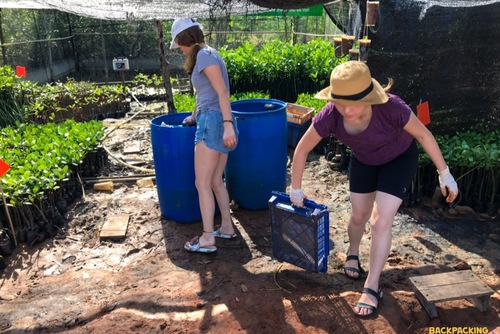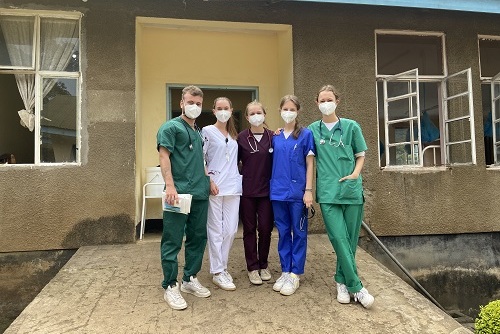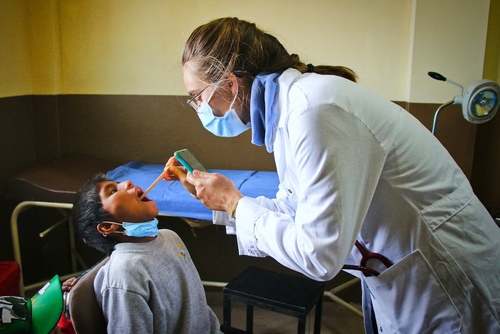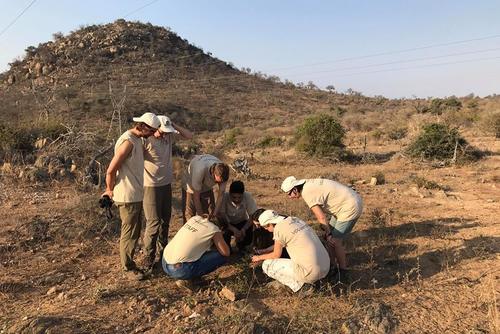It provides an opportunity to learn about other cultures, make new friends, study in a different envionment and also travel.
This experience gets you out of your comfort zone, testing your ability to adapt to a variety of new situations and will also help you to improve academically and personally.
When planning a studying abroad experience it can feel overwhelming, there are so many things you need to consider and arrange. It's important to prepare well in advance so that you are prepared and can then make the most of your time overseas.
We have put together a guide to the top things you need to consider before going to study abroad and also a checklist with tips to help you prepare this life changing experience...
1. Research Courses & Destinations
Make sure you research the country, insitution and course and find out if it is exactly what you are looking for.
Some things to consider include is the course in English? What’s the political situation like? What season will you be arriving? Do the study abroad programs you are interested in have positive reviews?
All these are important to consider when you are picking the perfect destination for you. You might like to read this guide to the most popular study abroad destinations worldwide.
2. Work Our the Cost
You will need to have money for flights, accommodation and general living costs. Every country has different prices some are cheaper than others. Try to work our how much the experience will cost you and make sure you have funds prepared to pay for the trip.
3. Prepare Documents
Make sure your passport is still in date and you have at least 6 months before the expiry point. Check to see if you need a visa and get this arranged well in advance.
We recommend putting all your documents together e.g. flight tickets, books, itineraries, advice etc. It is also good to be organised.
4. Search Flights
Find flights to your destination and book as early as possible so you get the best deals.
5. Talk to Your Bank
Go to your bank and tell them you will be going overseas so you can be sure your credit or debit cards will work. Sometimes if you don't inform your bank and they see your card has been used overseas they might suspend the card to prevent fraud.
6. Exchange Currency
Even if you are going to take your bank cards with you it is important to have the currency of your destination.
7. Check Safety Advice
Read up on safety advice for studying abroad and for the destination you are going to be living in.
You can follow basic guidelines to stay safe e.g. be aware of your surroundings, don't let people see how much money you're carrying, and try not to draw unnecessary attention to yourself.
While these safety precautions are always important, they become even more so when you're in an unfamiliar place.
While you're learning your way around your host city, avoid venturing out too far by yourself. To familiarize yourself with your surroundings, learn your way around your new neighborhood first.
Once you know your way around your immediate surroundings, gradually venture beyond them until you're familiar with your entire host city.
To make the process go faster, ask a classmate to explore with you, go on a free walking tour, or hire a professional tour guide.
8. Prepare for Medical Emergencies
Check to see if you need to get a health check up or there are any vaccinations required before you travel to your destination.
While unlikely, emergencies can happen - and preparation is key to preventing a bad experience from spiraling out of control. Think about what you would do if you had a medical emergency while studying abroad.
While most people know they'll need to provide their medical histories in emergency situations, they often don't think about how they'd communicate this information. Especially if you are going to be in a foreign country where you don't speak the local language fluently, this can pose a huge problem.
Buy travel insurance or consider purchasing a membership from a company, such as MedjetAssist, that arranges medical language translation assistance.
If you have a medical emergency, a knowledgeable translator can provide invaluable assistance that will help you get the best medical care possible. Make sure you are covered for the duration of your program just to give yourself peace of mind.
9. Find Things to Do
Exploring your host country is an important part of your study abroad experience, so research and plan how you're going to spend your breaks. This is one of the main benefits of living abroad getting to see places you might never normally go.
If you plan on studying in Europe or other worldwide destinations there are so many things you can do. Check places to go, things to do and make sure your make the most of your free time.
Putting together a plan in advance will allow you to see everything you're interested in, and you can always make adjustments if necessary.
Think about whether you want to travel alone, book a tour or if you'd like to invite friends. Research transportation, accommodation, and food costs as well as the prices of admission to any attractions you might want to visit.
10. Be Open Minded
Make sure you are open to new experiences, people, cultures and countries.
You don't want to arrive with negative thoughts or have feelings of 'this isn't how things are done back home'.
Go into the program with an open mind and this will help you to enjoy the whole experience more.
Studying abroad really is a valuable experience that provides a life lessons both inside and outside of the classroon. It allows you to gain independence and self-confidence.
To make the most of your experience, educate yourself about your destination before you leave home, prepare for emergencies, and give yourself lots of time to acclimate to your new environment. Hopefully our tips have helped to get you ready.
Related Pages






















